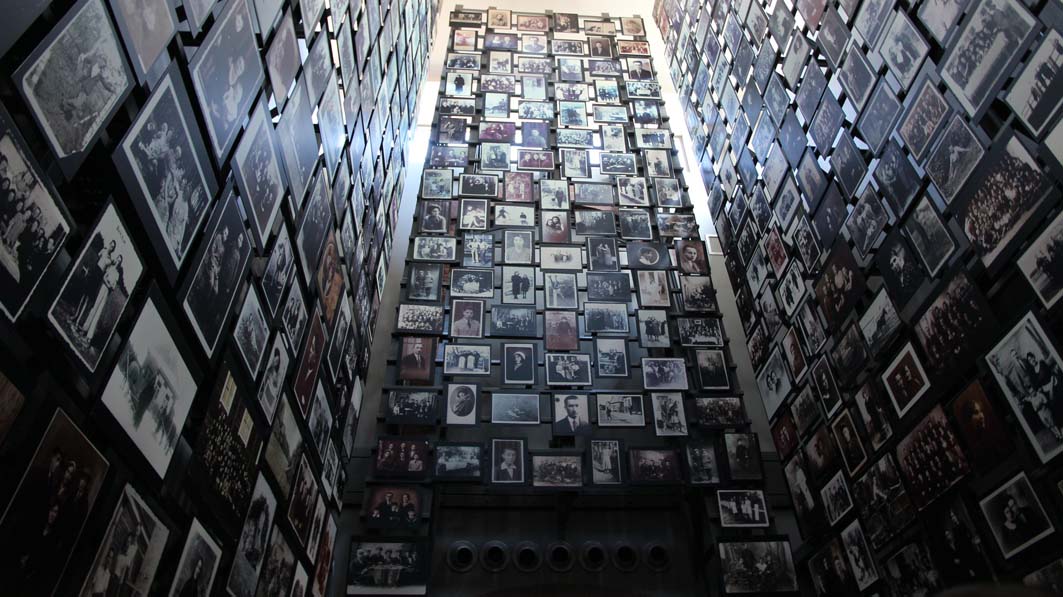When it comes to history, there’s a saying, “Those who don’t learn from history are doomed to repeat it.” It’s a lesson that a high school principal and a British reality television star should take to heart. While there’s nothing wrong with not fully understanding a historical event, siding with Holocaust deniers or saying that the Second World War is damaging to a child’s mental health goes a bit too far. These cases are an indication of a growing trend of historical ignorance.
In the case of the Florida principal Dr. William Latson, he was caught on an email explaining to one mother that he doesn’t want to confirm or deny the Holocaust as an historical event.
“I can’t say the Holocaust is factual, historical event because I am not in a position to do so as a district employee,” Latson wrote to the concerned parent. He went on in another email to say that, “Not everyone believes the Holocaust happened. And you have your thoughts, but we are a public school and not all of our parents have the same beliefs so they will react differently. My thoughts or beliefs have nothing to do with it because I am a public servant.”
That’s the equivalent of saying that slavery in the United States is not a historical fact. The district fired him last week.
When it comes to the Holocaust, there is no doubt that this event occurred. From pictures and films taken at the time to places like Auschwitz and eyewitness accounts, the evidence is overwhelming. There was even a highly publicized trial, with an accompanying book and Hollywood film that went into the details of the Holocaust and culpability, which largely discredited a seasoned Holocaust denier in the process.
Dr. Latson’s comments are shocking but maybe not surprising. After all, education on the Holocaust is trending at an all-time low. According to one study, 22% of millennials don’t know if they’ve heard of the Holocaust, 41% believe that only two million Jews were killed not six million, and about 66% could not identify Auschwitz-Birkenau, the German concentration and death camp in Poland where at least one million people lost their lives. To think that a U.S. high school principal could be so historically ignorant to even suggest that the Holocaust isn’t true is deeply disturbing.
This aversion to history has spread over to Britain as well. Reality television star Freddie Bentley, who was on the U.K. version of “The Apprentice,” told “Good Morning Britain” that schools should avoid teaching children about World War II because it could damage their mental health.
Bentley said, “It was a hard situation, World War II; I don’t want anyone to think I’m being disrespectful in that way whatsoever. However, I will stand by the point that I don’t think it’s educational in the way that we—there’s so many problems going on in the world like Brexit, that’s not talking school, and climate change, which is a situation that I thought we should be aware of. When I left school, I felt like, it hit me like a ton of bricks, cause I didn’t know anything in general life.”
Reading about the Second World War can be unpleasant at times, but that war has deeply influenced our current world for the last 70 years. The five permanent members of the U.N. Security Council are the Allied victors of World War II: United States, France, United Kingdom, Russia and China. These nations all still have considerable influence in our current world. But there is something beyond that as well.
WWII is an important tool in explaining to our youth, who have only lived in times of relative peace, the devastating effects of war and the depravity and the sinfulness of man. According to estimates, 60 million people died in World War II. The vast majority were civilians. That includes the mass murder of Jews, Gypsies, the handicapped and others killed in Nazi death factories. There were also the firebombing campaigns of the Allied war machine, which were designed to break the enemy’s will but did so by targeting military and civilian areas. This war is also the only conflict to ever see an atomic weapon used in combat.
There are stories that I’ve read that are almost too awful to comprehend, but that is the reason we study history. To try and prevent things like that from happening again.
But historical ignorance has become all too apparent in our current day and age. Terms like “concentration camps” and “Nazis” are used so often and out of context that the meaning and terror of those words have been completely lost. Instead of ignoring history because it could be seen as mentally damaging to children and useless in relation to climate change, perhaps some educators should change the way they teach. History is the story of our world, and despite what some believe, it remains an intricate part of our lives and future.
You can follow Brittany on Twitter @brittanyraymer.
Photo from Flickr






